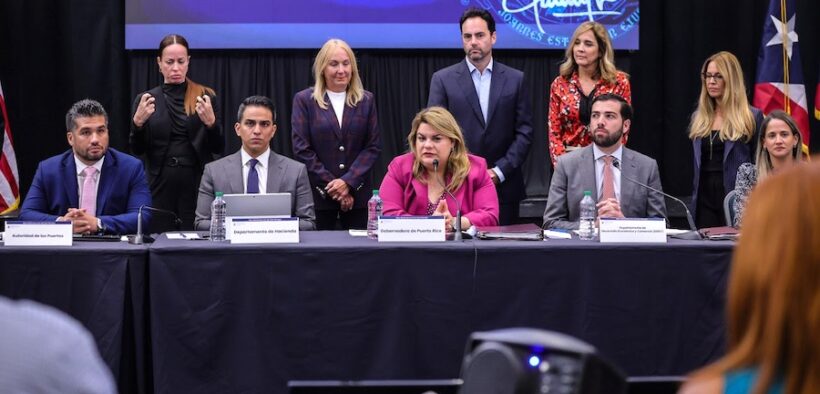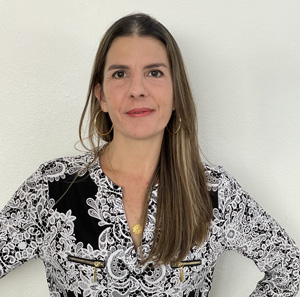Puerto Rico gov meets with business leaders to address Trump tariffs

They discussed reshoring, energy costs and trade strategy to protect the island’s economy.
Puerto Rico Gov. Jenniffer González met Monday with members of her economic cabinet and private sector leaders to develop joint strategies in response to a wave of new tariffs being imposed by the Trump administration.
President Trump has announced sweeping tariff increases, including a 25% surcharge on imports from Canada and Mexico and tariffs of up to 145% on Chinese goods. He also proposed a 100% tariff on foreign-made films, which González described as a potential boon for Puerto Rico’s film industry. The White House has not yet detailed how the film tariff will be implemented.
The meeting brought together representatives from key industries — manufacturing, trade, construction, agriculture and distribution — alongside officials from the Department of Economic Development and Commerce (DDEC, in Spanish), Invest Puerto Rico, the Treasury Department and others.
“We shared our proposed strategies and heard their recommendations, aiming to create a unified action plan that will turn these global challenges into opportunities for Puerto Rico,” González said.
She emphasized that a key government strategy is to promote reshoring — the return of manufacturing operations to Puerto Rico from abroad — by capitalizing on the island’s competitive advantages to reinforce its role in the U.S. supply chain and strengthen its economic standing.
“It’s vital we work closely with our business leaders and incorporate their input to protect the interests of our people and entrepreneurs,” she added.
DDEC Secretary Sebastián Negrón-Reichard said the meeting focused on understanding how the tariffs are affecting local businesses, particularly rising costs and supply chain disruptions. He said the government is committed to collaborating with the private sector to identify practical measures that preserve jobs and sustain economic momentum.
González also cited Puerto Rico’s energy system as a major obstacle.
“High electricity costs and energy unreliability remain key concerns. While many pharmaceutical companies have backup generators, energy expenses still heavily influence their investment decisions,” she said. Her administration, she noted, is working to reduce those costs.
The meeting concluded with consensus on the need for a collaborative action plan to navigate the evolving trade environment and ensure long-term economic resilience.
Retail leader proposes economic reforms
United Retailers Association President Ramón Barquín also shared a strategic plan during the meeting, calling for reforms to address Puerto Rico’s structural challenges.
“This is the most opportune time to confront Puerto Rico’s structural problems,” Barquín said. He called for reducing the size of government, shrinking the public workforce and managing public debt more effectively. He also proposed a broad tax reform to improve productivity and ease the burden on private enterprise.
Barquín recommended labor reforms to make business operations more efficient and reduce employer costs. He called for incentives to support business innovation and trade, and stressed the need to stabilize the island’s energy system to attract investment.
He argued that Puerto Rico’s geographic location and status as a U.S. jurisdiction make it a strong nearshoring and reshoring candidate toward efforts “to become a vital hub for American manufacturing and services.”
“We must take advantage of the inescapable fact that we are part of the most powerful post-industrial economy in the world — the United States,” Barquín said. “The tariff policies initiated under President Trump aim to bring production back to U.S. soil, and Puerto Rico is well-positioned to benefit from this shift.”












